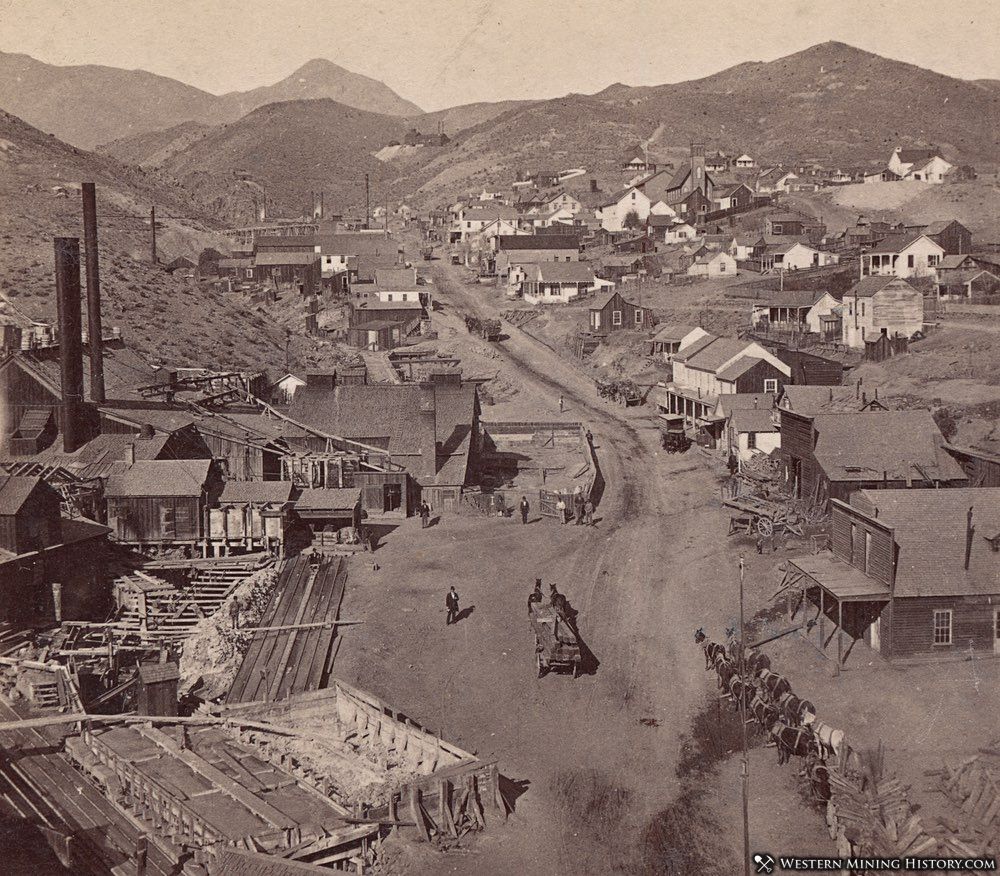Silver City History
Silver City was established in 1859 shortly after silver discoveries that resulted in Nevada's Comstock mining rush. In 1861, the town reportedly had a population of 1,200 and was home to boarding houses, saloons, four hotels and extensive stables and corrals.
Silver City was an important link between the silver mines of Virginia City and the ore processing mills located near Dayton and along the Carson River.
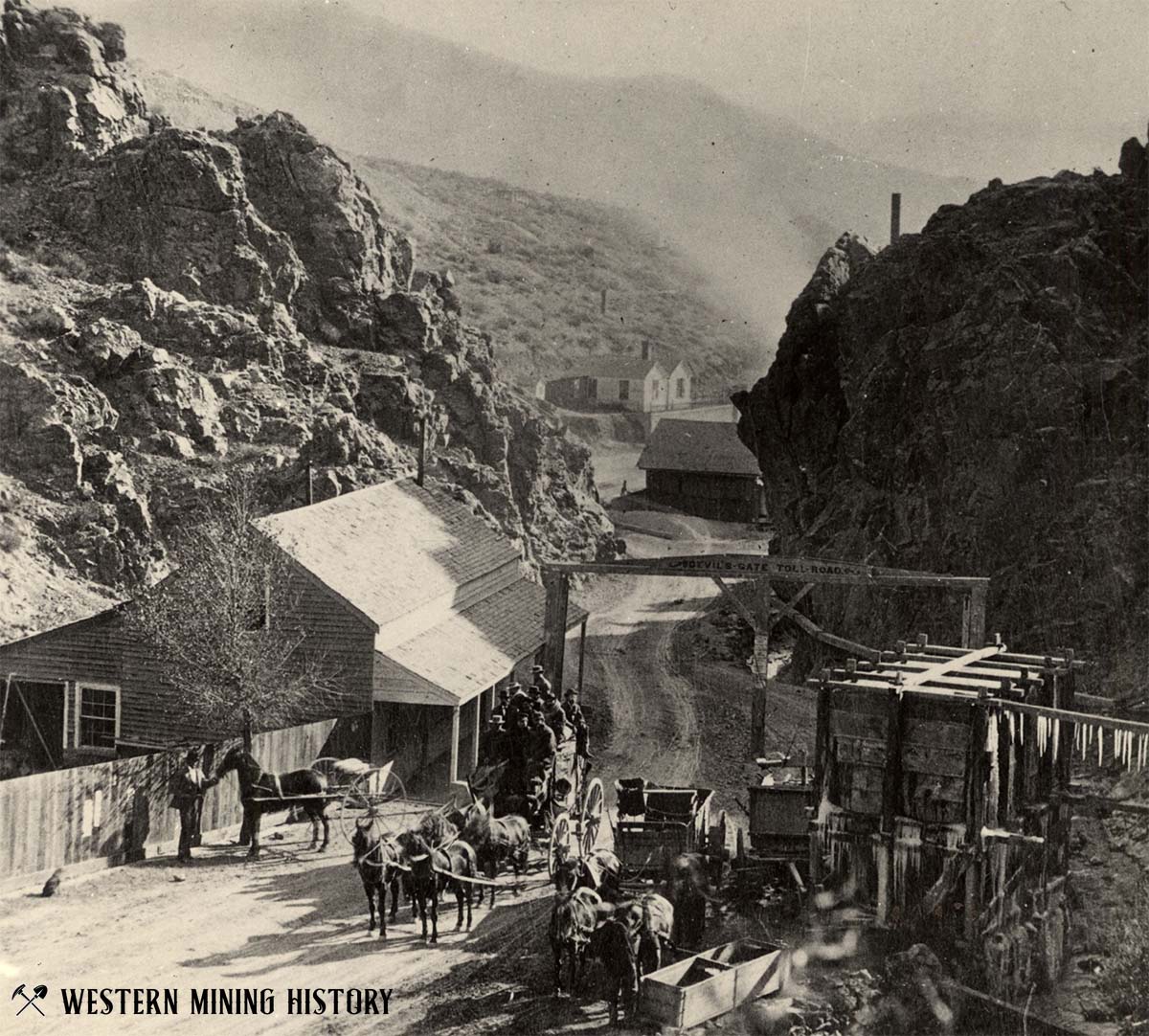
While the town thrived for a few years, its own mills and mines proved to be less productive than Virginia City and Gold Hill. A serious decline began after 1869 when the Virginia & Truckee Railroad was completed, which eliminated the town's value as a freight center.
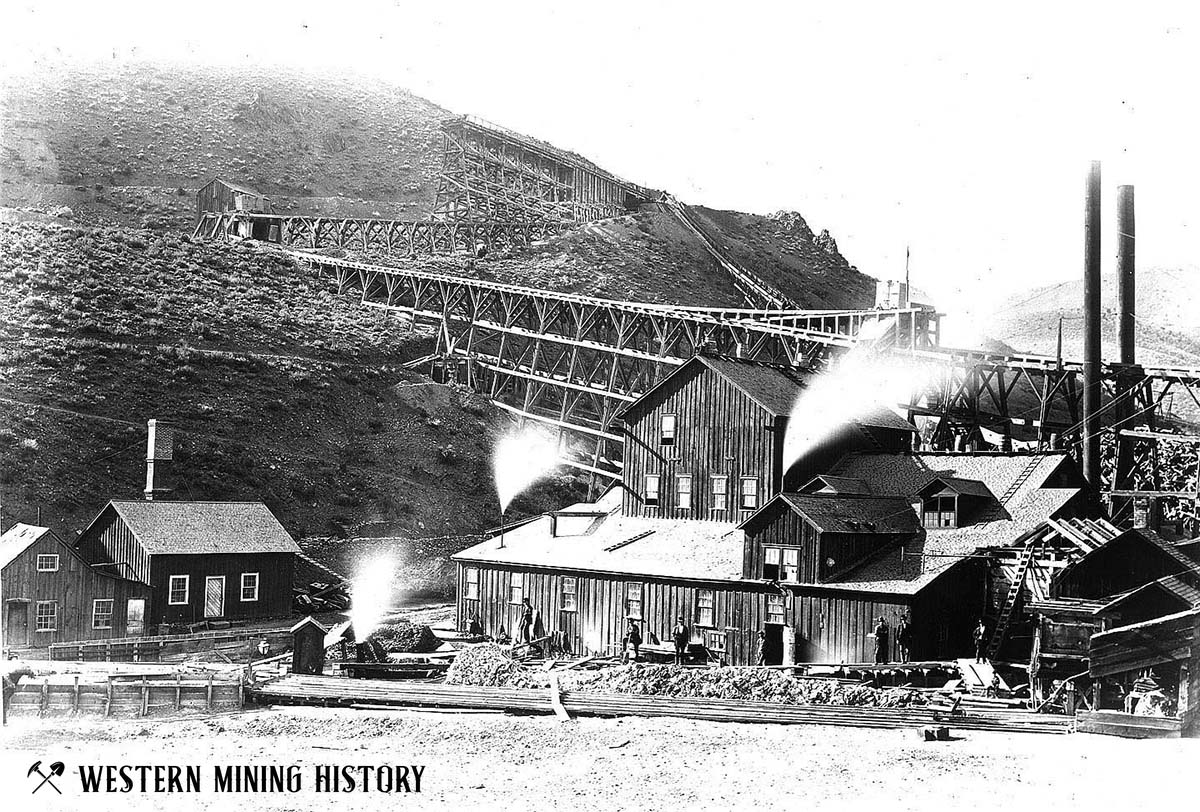
Silver City has never gained the acclaim and attention of Virginia City. Today there are significant remnants in Silver City, including a handful of historic structures still in use that serve as direct links to the town's rich past.
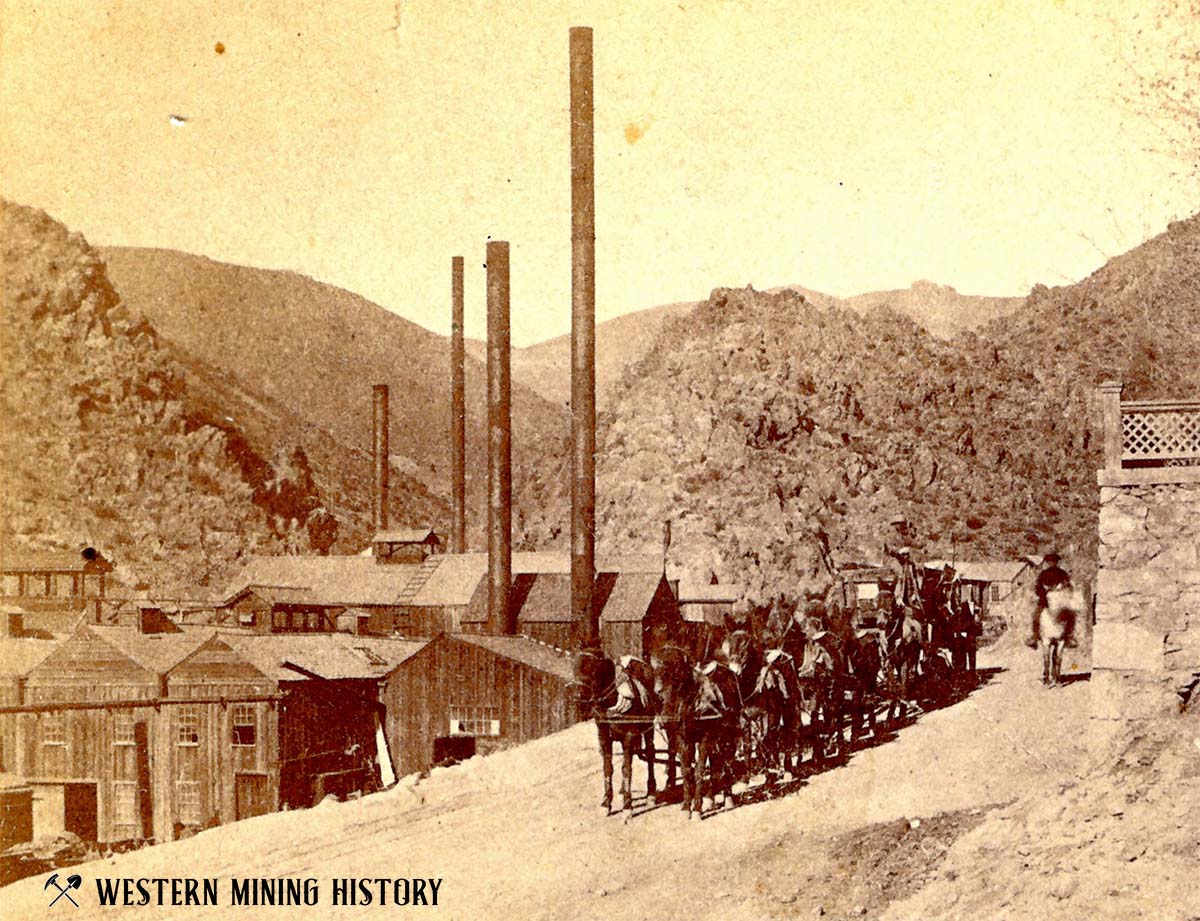
While the community does not have a large commercial district like Virginia City, it does have a post office, a substantial cemetery and buildings that are important to the history of Nevada, such as the Hardwick House, a former icehouse (and former bed and breakfast) built in 1862 that is now a private residence.
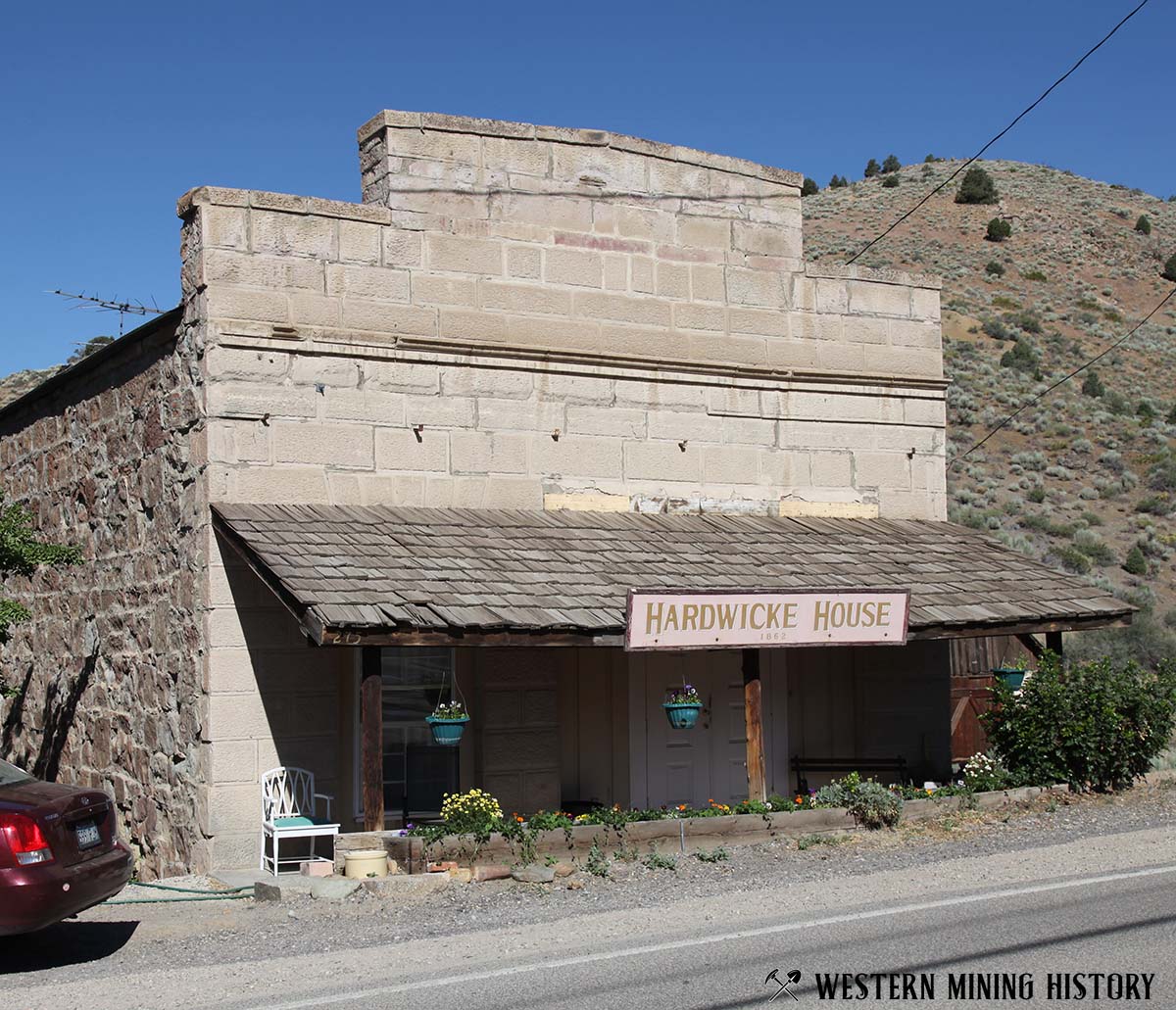
Previous text is courtesy of the Carson City Convention & Visitors Bureau. The following text was provided by the Silver City Volunteer Library.
Silver City, Nevada - Fascinating History; Vibrant Present
By 1861, Silver City had at least a dozen stores, 4 hotels, 3 blacksmith shops, 2 butcher shops, and a post office, serving a population of more than 1,000 people. An 1864 mercantile guide for the Comstock region described Silver City as a place where "citizens display a refined taste...by the numerous gardens and other external and substantial improvements that they are constantly making...Silver City is fully represented by societies, organizations and social institutions; which for numbers and unity, would be creditable to the reputation of larger cities."

Cultural Re-Population
Although Silver City has roots in the underground mining boom of the 1860s, by the 1950s the town had become a quiet place, a curiosity for passing tourists who saw it as a ghost town. A shift began in the mid 1960s, however, with the arrival of a new wave of residents, and the town's "cultural re-population" continued for the next 5 decades.
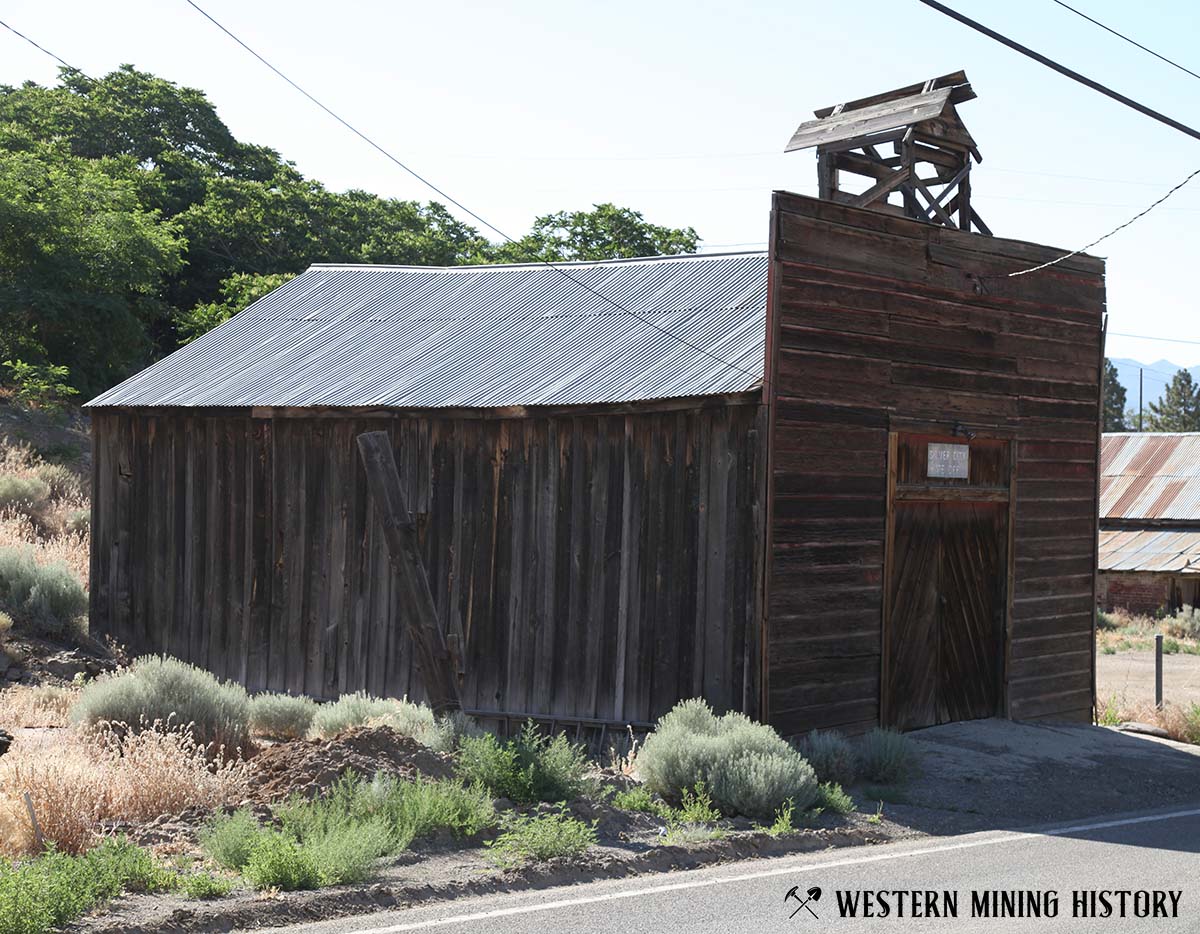
Silver City Today
The community of less than 200 people has produced a remarkable body of work during the last 50 years that has had a demonstrably positive impact on the town, the state and beyond. Residents have contributed their diverse skills to produce regionally and nationally recognized work in archaeology; visual art; theater; music; historic preservation; and academic research and projects resulting in a wide range of publications.
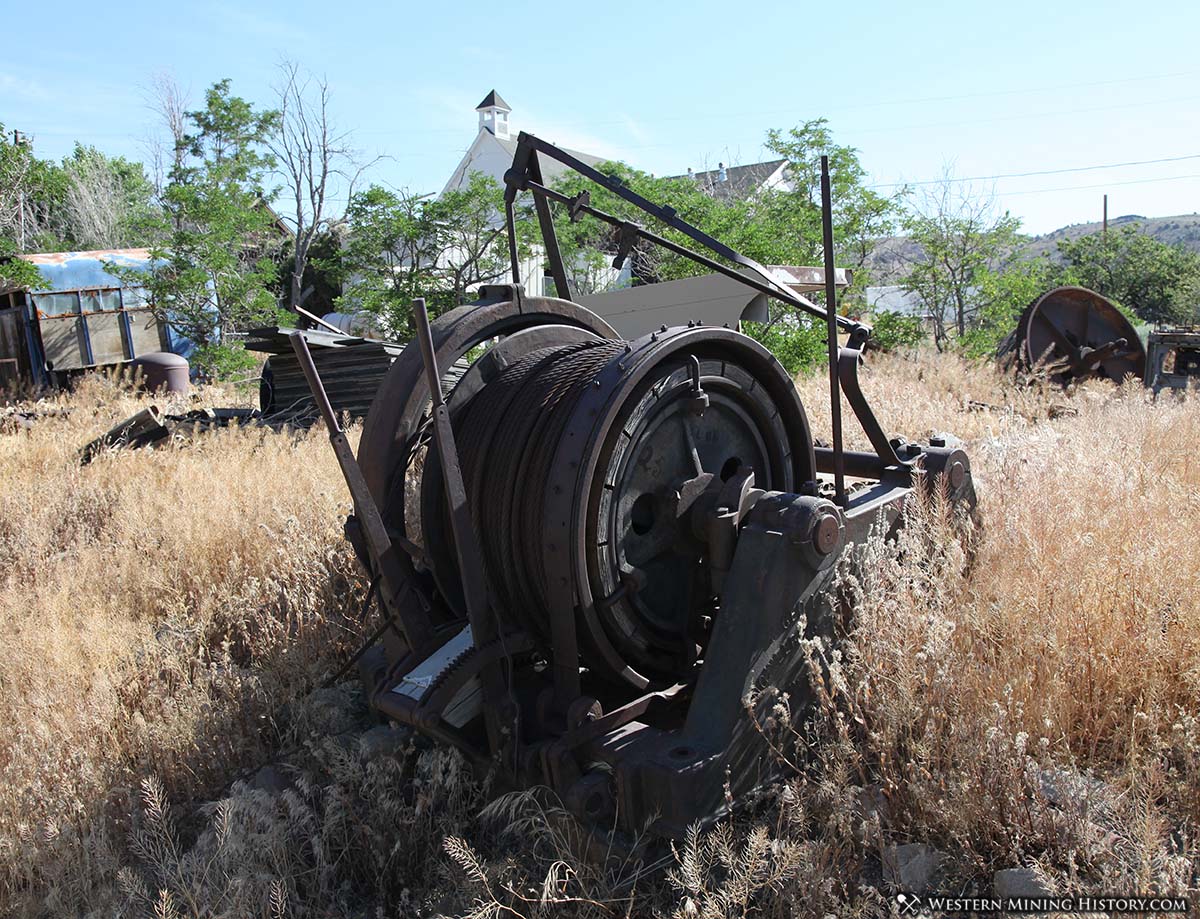
Many have created hand-crafted items in silver, wood, gemstones, etc. and examples can be found in diverse places, from the Smithsonian American Art Museum to the region's historic cemeteries, homes and buildings. Accordingly, in 2014 the Silver City Advisory Board resolved to recognize the existing character of Silver City as an "Arts and Cultural Resources Production Center", and formally recognized the considerable work residents have contributed and continue to contribute to the production of important work in the areas of arts and cultural resources.
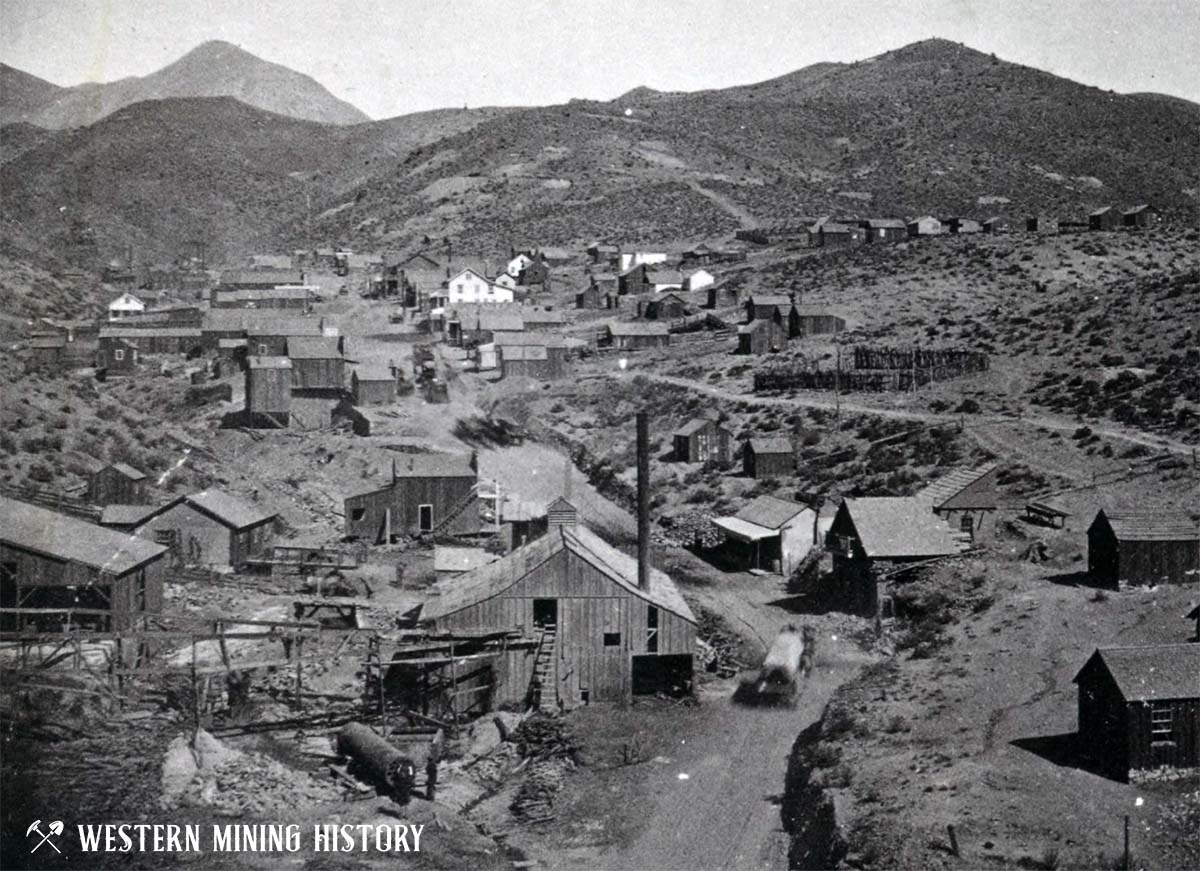
The Board also formally recognized the extraordinary support the entire community has given and continues to give to local arts and cultural resources production, events, and programming. Today the town has active arts and historic preservation groups, an outdoor performance stage, a community garden, a volunteer library, a community center and park, plus a resident artist program and a summer arts and science program.
Silver City Historical Markers
There are several State Historical Markers in Silver City, including State Historical Marker #264 at the School House at 385 High Street.
Although fire destroyed the original 1867 School House in 2004, a lovely community center was built in 2007 in the same location, with materials from the original building incorporated into the new structure. The new building closely resembles the old School House in size and architectural style.
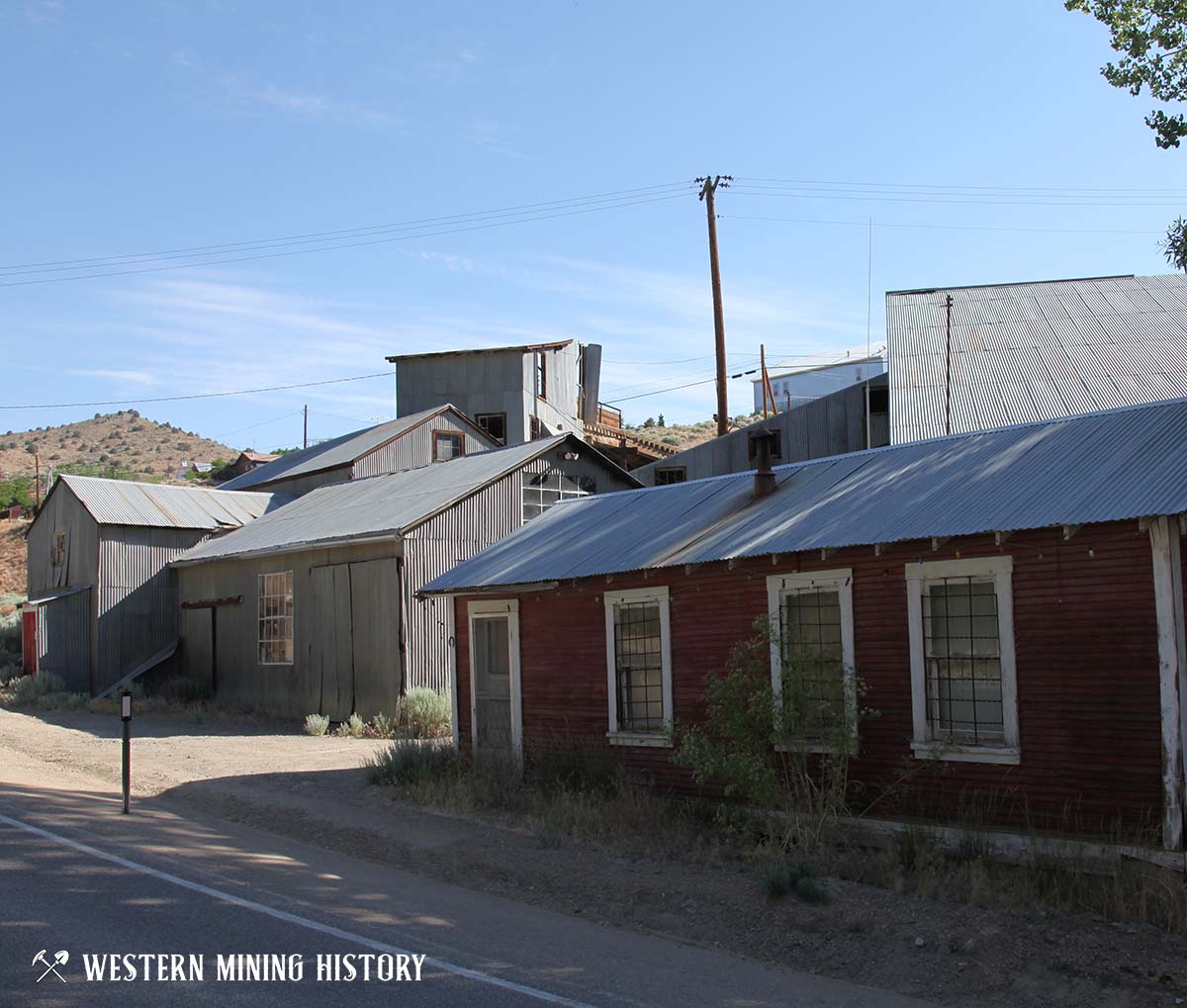
In 2007, Silver City residents were rewarded for their work on an archaeological dig at the School House site with a historic preservation award from the Nevada State Historic Preservation Office. The award honored the lead archaeologist for the project, long time Silver City resident Ron Reno, Ph.D, and the entire town of Silver City for their retrieval of thousands of artifacts associated with the remains of the 1860s school house.
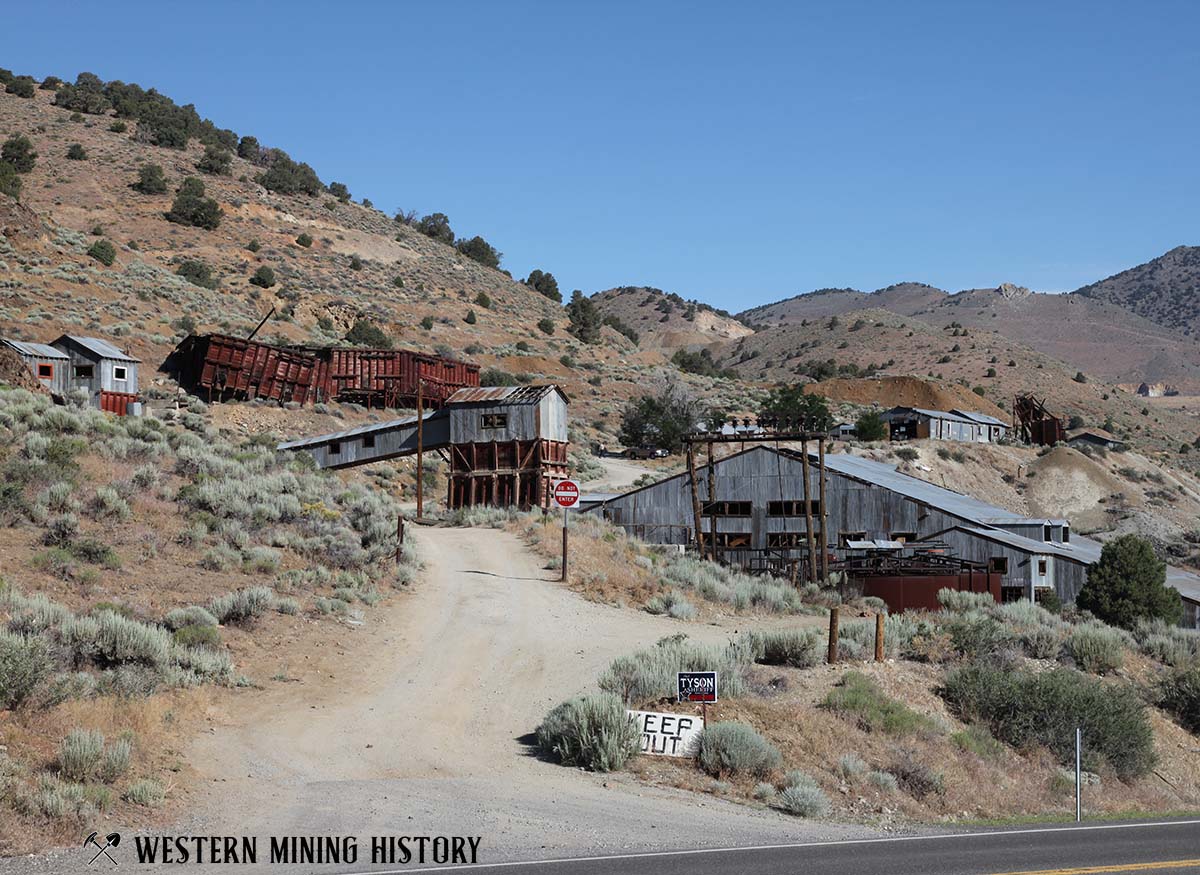
Look for additional historic markers at Devil's Gate, across from the U.S. Post Office on Main Street (Grosh Brothers), etc. Additionally, on Main Street (SR 342) not far from the U.S. Post Office, you will notice the historical Silver City Fire House, Masonic Amity Lodge #4 (Charter established in 1863), as well as remains of what was once known as Bonanza House or Hotel on the corner of Main and 2nd Street
The Comstock Lode: Nevada's "Big Bonanza"
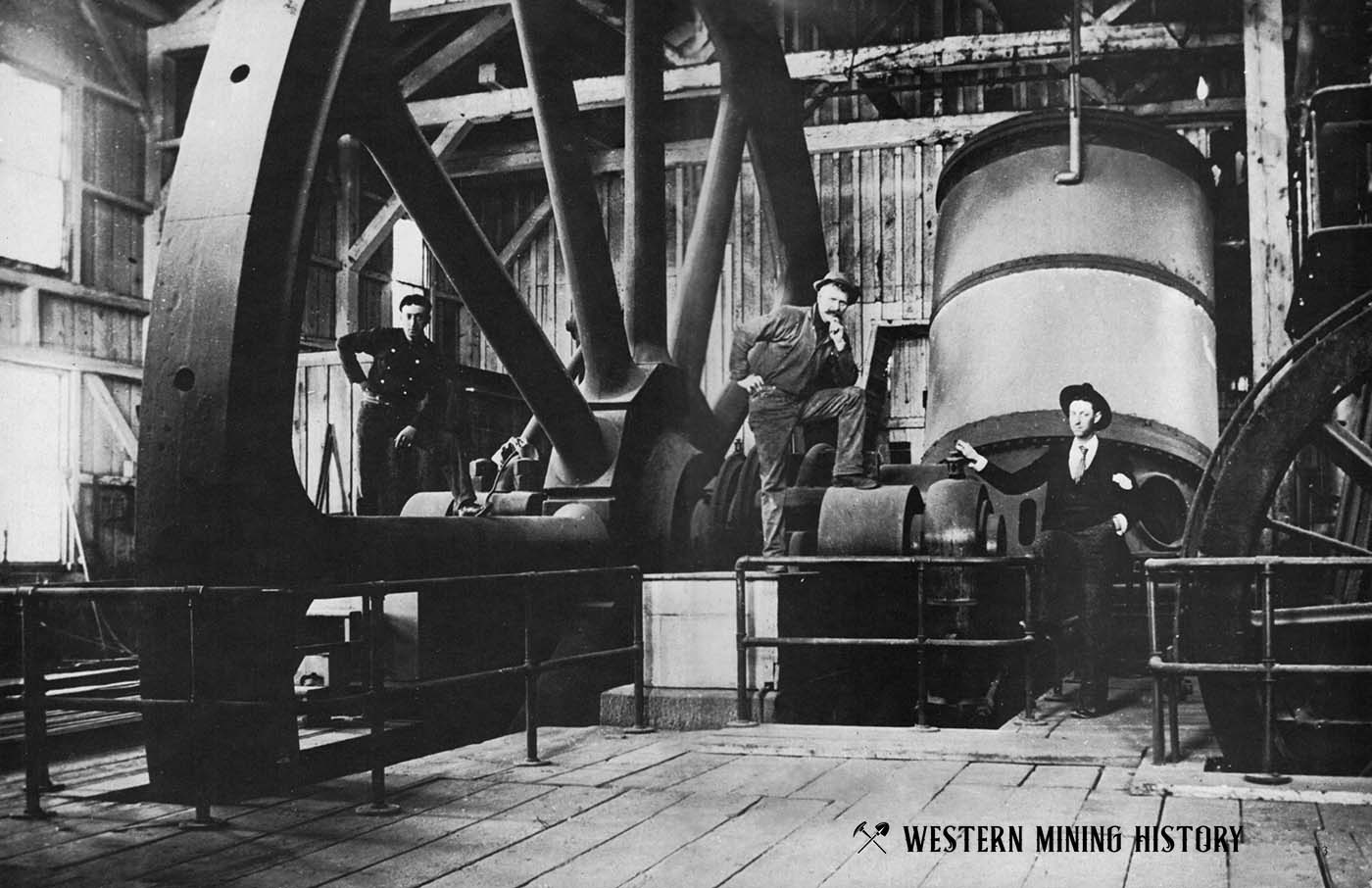
Numerous additional photos can be viewed at The Comstock Lode: Nevada's "Big Bonanza".
Mill Locations of the Comstock Lode
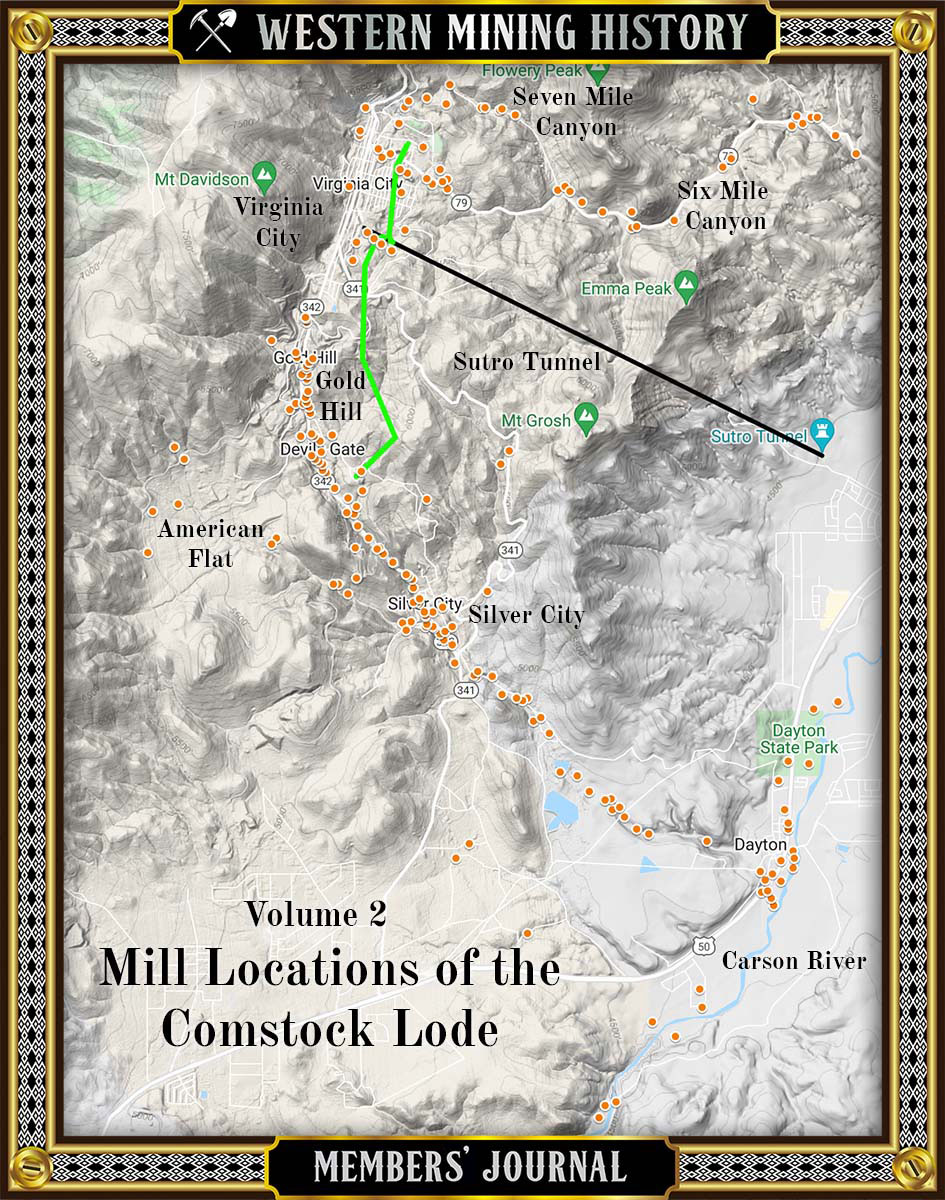
The WMH Member's Journal Volume 2 - Mill Locations of the Comstock Lode takes a look at the distribution of over 200 historical mill sites from the peak years of the great Comstock mining era.
Nevada Mining Photos
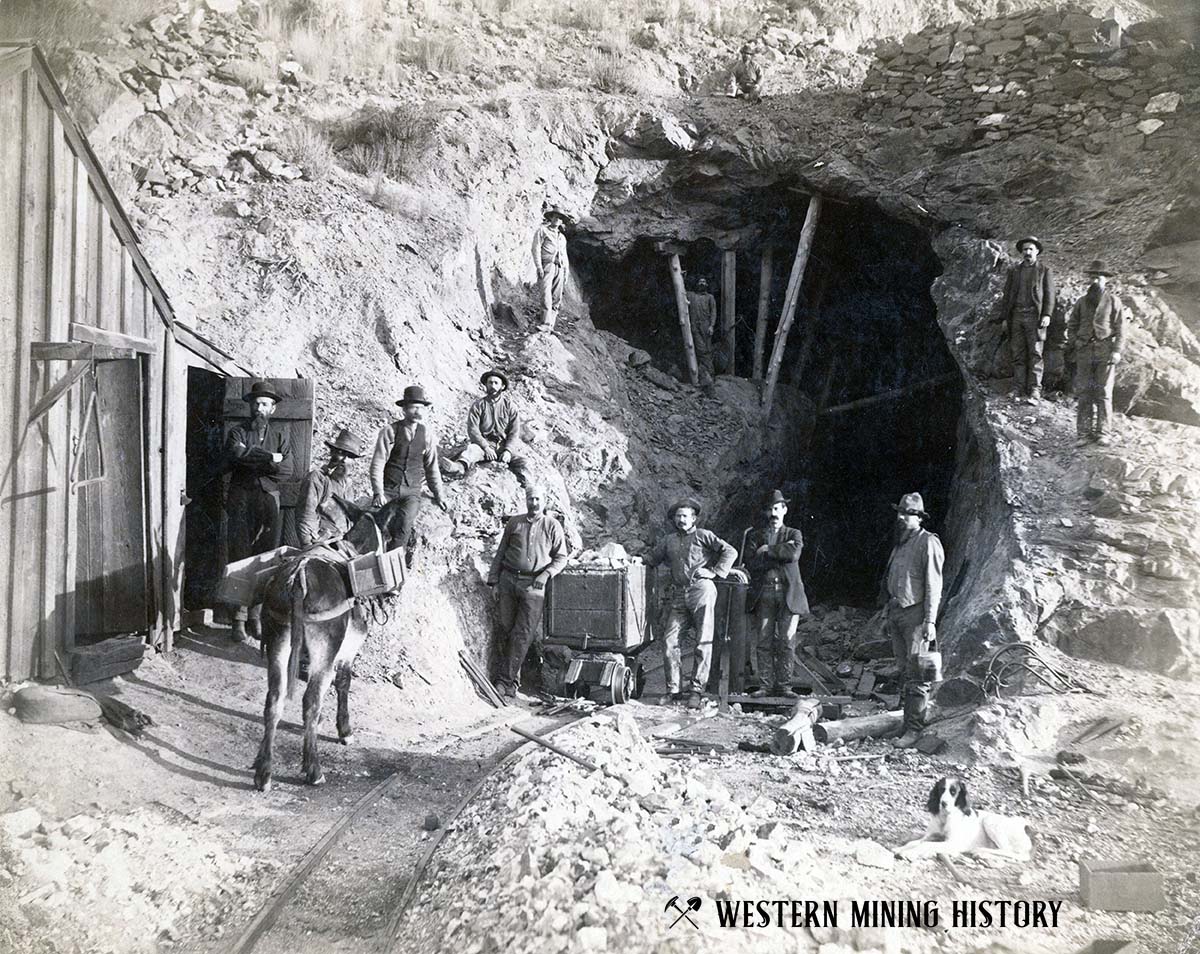
A Collection of Nevada Mining Photos contains numerous examples of Nevada's best historic mining scenes.
Nevada Gold
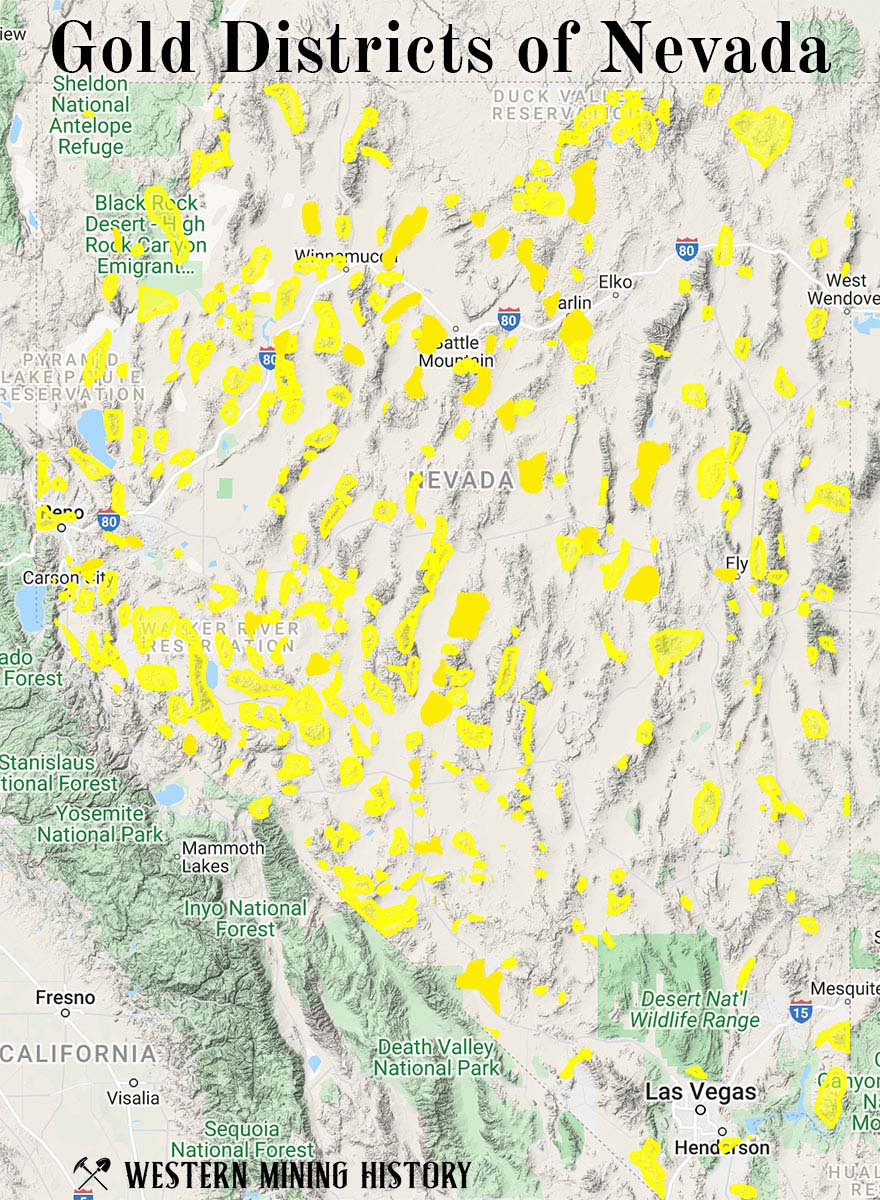
Nevada has a total of 368 distinct gold districts. Of the of those, just 36 are major producers with production and/or reserves of over 1,000,000 ounces, 49 have production and/or reserves of over 100,000 ounces, with the rest having less than 100,000 ounces. Read more: Gold Districts of Nevada.
